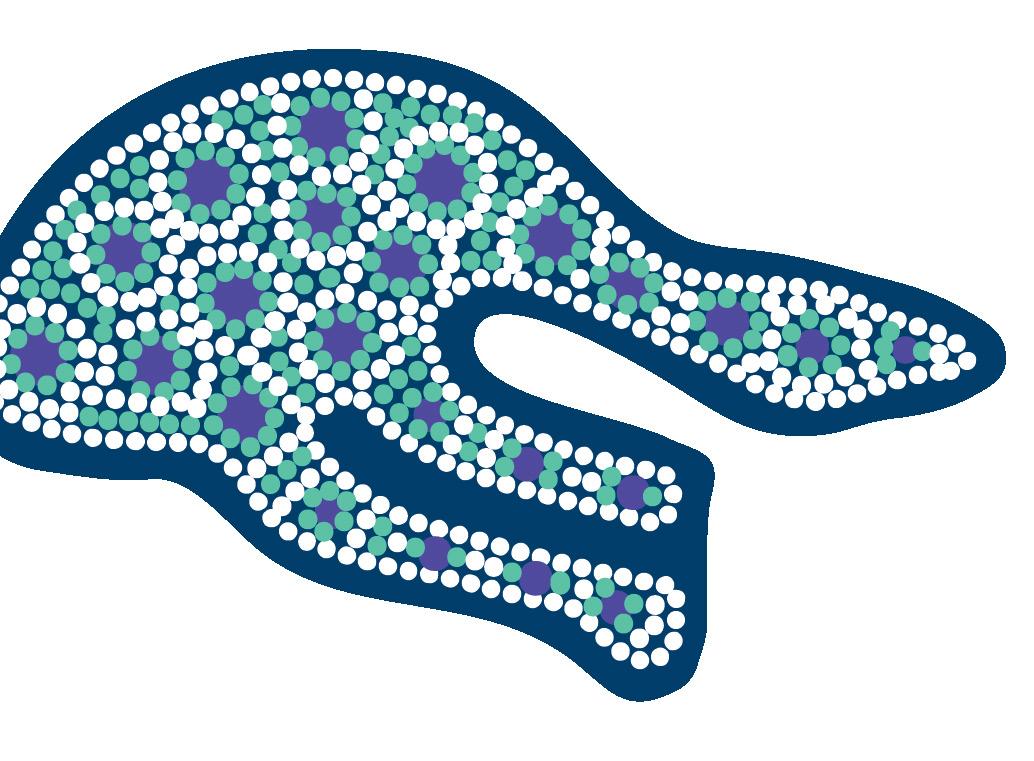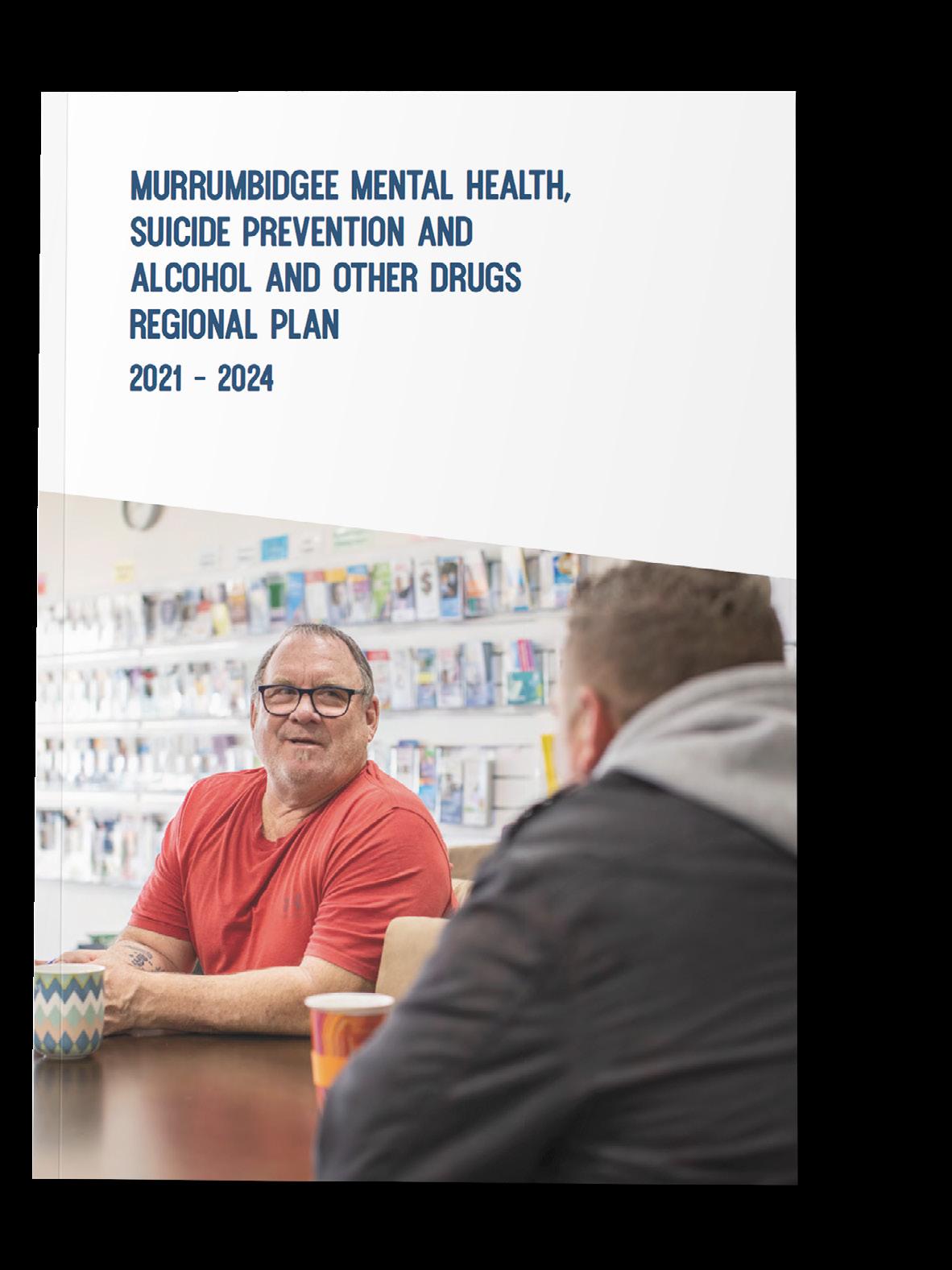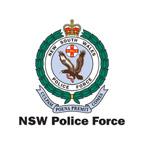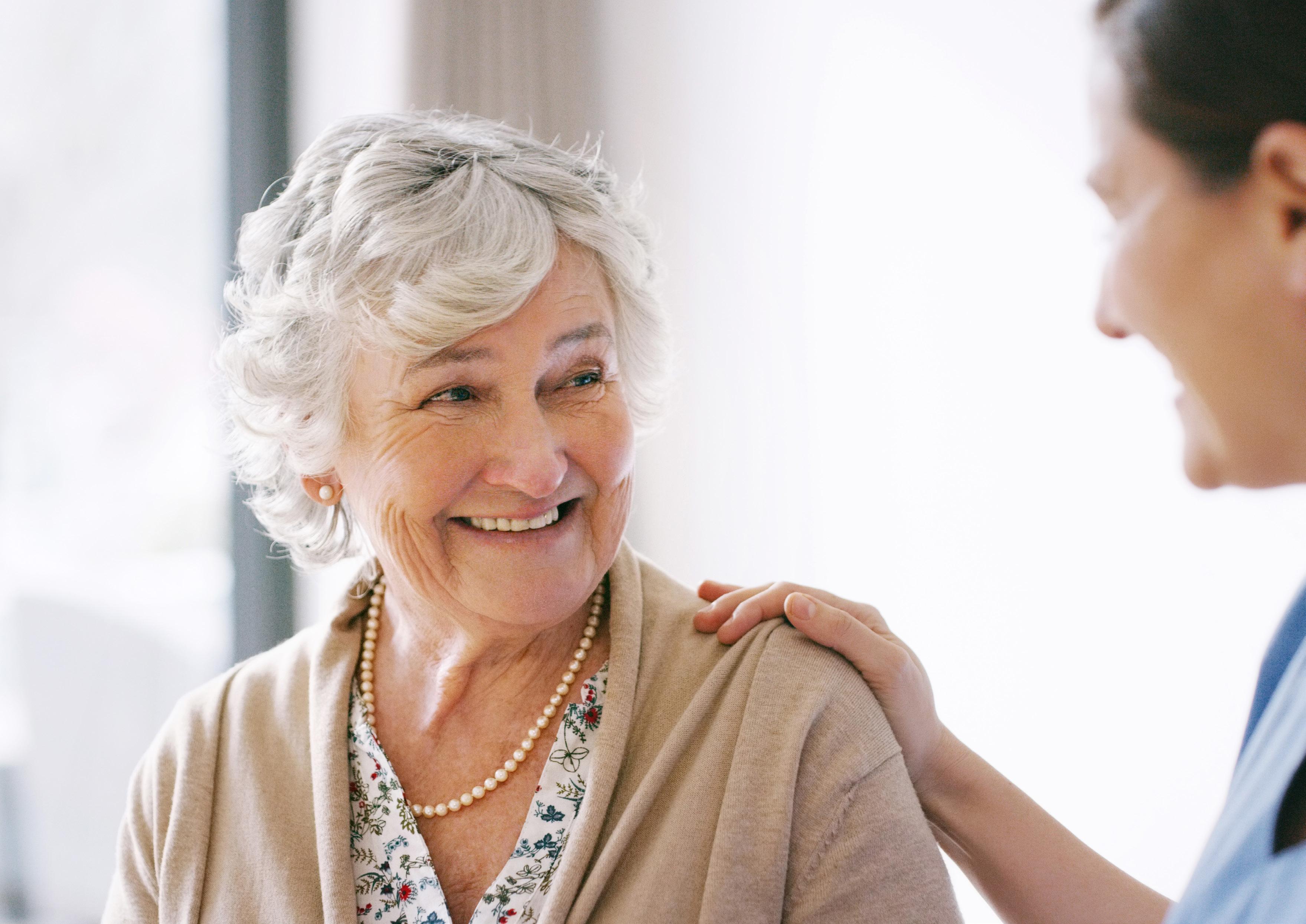Murrumbidgee Suicide Prevention and Aftercare

Priority Action Plan
January 2023 - June 2025


January 2023 - June 2025
Sincere gratitude to the member agencies and organisations listed who readily shared their views and experience about suicide prevention activities and responses in the Murrumbidgee region.
The Murrumbidgee Suicide Prevention and Aftercare Collaborative acknowledge the traditional custodians on the lands which the collaborative operates; the Wiradjuri, Yitha Yitha, Nari Nari, Wemba Wemba, Perepa Perepa, Yorta Yorta, Bangerang, Ngunnawal and Ngarigo Peoples. The collaborative recognises First Nations Peoples deep and continued connection to land, sea and community and on behalf of the collaborative we pay our respects to ancestors of the past, and leaders of the present and future.

We would also like to acknowledge people with lived and living experience of suicide, mental health issues and drug and alcohol issues, recognising their valuable contributions in helping to shape the support systems in community and so generously sharing their expert guidance to support the
The member agencies and organisations of the Suicide Prevention and Aftercare Collaborative are listed below:
Catholic Education
Centacare South West NSW
Department of Education
headspace Griffith
headspace National
headspace Wagga Wagga
Lifeline Australia
Murrumbidgee Local Health District
NSW Ambulance
Murrumbidgee Primary Health Network
NSW Police
Office of Dr. Joe McGirr MP
Office of the Hon. Michael McCormack MP
Office of Steph Cooke MP
Office of the Hon. Sussan Ley
MP
Pro Patria
Relationships Australia
Riverina and Murray Joint Organisation
Riverina Veterans Wellbeing Centre
Riverina Joint Organisation
Wellways Murrumbidgee
The Australian Government provides funding for projects under the National Suicide Prevention Leadership and Support Program. The program has been operating since 2017 and was recently expanded, with 31 organisation’s undertaking 40 projects over three years (2022-23 to 2024-25). The programs aim is to reduce deaths by suicide across the Australian population and among at risk groups, and to reduce suicidal behaviour.
One of the aims of the program is to support Primary Health Networks to lead a regional approach to service planning and integration for suicide prevention activities which meets the needs of individuals at the local level.
health.gov.au/sites/default/files/2023-07/the-national-suicide-preventionleadership-and-support-program-project-information-for-primary-healthnetworks_0.pdf
The bilateral agreement on mental health and suicide prevention in NSW provides the Commonwealth Government and NSW Government shared objectives to work collaboratively to implement systemic reforms that address gaps in the mental health and suicide prevention system, improve mental health outcomes for all people in New South Wales, prevent and reduce suicidal behaviour, and deliver a mental health and suicide prevention system that is comprehensive, coordinated, consumer-focused and compassionate.
Towards Zero Suicides is a $143.4 million investment by the NSW Government over four years from 2022-23 in initiatives that address priorities in the Strategic Framework for Suicide Prevention and contributes to the Premier’s Priority to reduce the suicide rate by 20 per cent by 2023.
The Towards Zero Suicides initiatives seek to provide leading best practice crisis care and support, build on local community resilience and improve systems and practices to reduce the suicide rate in NSW. This investment builds on the $87 million investment in Towards Zero Suicides from 2019-20 to 2021-22.
The initiatives being rolled out across NSW under the Premier’s Priority Towards Zero Suicides are responsive to the needs of each community. Together they provide a holistic approach to suicide prevention. The initiatives include:
• system enhancements
• suicide prevention training for NSW Government frontline staff and community members strengthening community care, and
• enhancing support in regional and rural areas.
The initiative continues to be developed and delivered with a major focus on the involvement of people with lived experience of suicide and inclusion of all key stakeholders. Together this initiative will support communities around NSW to start the journey towards zero suicides.
.health.nsw.gov.au/towardszerosuicides/Pages/about
The Mental Health Commission of NSW’s Strategic Framework for Suicide Prevention in NSW provides key directions for a whole-of-government approach to support a whole-of-community response to suicide prevention across NSW.
The updated framework builds on the significant achievements of the 2018-2023 Framework, particularly the Towards Zero Suicides initiatives, and acknowledges the extensive investments by Commonwealth, state governments, and regions. It draws upon and aligns with the National Agreement on Closing the Gap, the National Mental Health and Suicide Prevention Agreement, the National Suicide Prevention Adviser’s Final Advice and emerging evidence and achievements.
nswmentalhealthcommission.com.au/sites/ default/files/2022-10/The%20Framework%20 -%20Shifting%20the%20Landscape%20for%20 Suicide%20Prevention%20in%20NSW%2020222027_0.PDF
The Fifth National Mental Health and Suicide Prevention Plan commits to a nationally agreed set of priority areas and actions, that are designed to achieve an integrated mental health system and that will be used to build a stronger, more transparent, accountable, efficient, and effective mental health system. These actions represent what governments and the sector believe are achievable and measurable improvements to the current functioning of the mental health system. The Fifth Plan is accompanied by an Implementation Plan that sets out who will be responsible for undertaking the actions agreed in the plan and how implementation will proceed and be coordinated across governments.
mentalhealthcommission.gov.au/ getmedia/0209d27b-1873-4245-b6e549e770084b81/Fifth-National-MentalHealth-and-Suicide-Prevention-Plan.pdf
On 27 August 2015, the National Aboriginal and Torres Strait Islander Leadership in Mental Health (NATSILMH) launched the Gayaa Dhuwi (Proud Spirit) Declaration. The Declaration is the touchstone of Gayaa Dhuwi (Proud Spirit) Australia’s work to reform Indigenous social and emotional wellbeing, mental health and suicide prevention and secure a fit for purpose mental health system for Aboriginal and Torres Strait islander peoples.
gayaadhuwi.org.au/resources/the-gayaadhuwi-proud-spirit-declaration/
Achieving integrated regional planning and service delivery is the first priority area of The Fifth National Mental Health and Suicide Prevention Plan. The Plan recognises that Primary Health Networks and Local Health Districts provide the core architecture to support integration at the regional level.
The Murrumbidgee Primary Health Network (MPHN) and Murrumbidgee Local Health District (MLHD) have committed to working with local stakeholders and community members including people with lived experience to develop and implement a Regional Mental Health, Suicide Prevention and Alcohol and Other Drugs Plan (The Plan) for the Murrumbidgee region. The Plan will guide high quality decision-making ensuring that resources are targeted to best respond to local mental health, suicide prevention and alcohol and other drugs needs.

mphn.org.au/regional-plan
Areas:
1.
2.
Coordinating treatment and supports for people with severe and complex mental illness and ALCOHOL AND OTHER DRUG ISSUES
3.
A systems based, collaborative, approach to suicide prevention, consumer and community follow up and support
4.
Improving physical health outcomes for people with mental illness and alcohol and other drug issues
Improving THE mental health of priority populations

MPHN was a high-fidelity trial site for the Black Dog Institutes LifeSpan project. This laid the foundations and partnerships for a focus on suicide prevention within the region. In 2018, MPHN commissioned Beyond Blue’s The Way Back Support Service which provides non-clinical support to people following a suicide attempt.




In 2018, key stakeholders involved in suicide prevention in the Murrumbidgee region came together for a roundtable discussion on current initiatives, challenges, and gaps in suicide prevention and postvention strategies. This included the consideration of existing responses to suicide events and other critical incidents with the community and how the region and its emergency and mental health services could improve localised support. Areas of focus were agreed to by roundtable members with the development of the first Priority Action Plan to help guide activities. mphn.org.au/s/Murrumbidgee_Suicide_Prevention_Priority_Action_Plan_FINAL.pdf
Progress on agreed key priority areas included the formalisation of the Local Response Group (LRG) to ensure coordinated and timely supports are put in place following a suicide event or critical incident. A communications and response protocol was developed which governs and supports the work of the LRG.
In 2020, members of the roundtable meetings agreed to become the Murrumbidgee Suicide Prevention and Aftercare Collaborative, demonstrating an ongoing commitment to suicide prevention and aftercare for the Murrumbidgee region.

Murrumbidgee Primary Health Network (MPHN) is a not-for-profit organisation servicing more than 252,358 people, living across a land mass of 126,124 square kilometres. It is one of 31 local and independent PHNs established nationally to support the primary healthcare sector and improve health outcomes, particularly for those at-risk populations.
MPHN achieves this by understanding the region’s health needs to inform:
• Funding services to meet population health needs;
• Integrating local services and systems and improve coordination of care; and
• Supporting the development of a local sustainable health care workforce through quality improvement and professional development.
In 2018 MPHN became a LifeSpan high fidelity trial site, resulting in the PHN gaining experience working and leading evidence informed suicide prevention activities within the Murrumbidgee region.
The Federal 2022-23 Budget included an investment of $42.3 million in targeted regional initiatives for suicide prevention to build on the success of the National Suicide Prevention Trial and to support regional suicide prevention activities underpinned by a systems-based approach to suicide prevention. The essential elements of a systems-based approached can be derived from the World Health Organisations ‘s Preventing suicide: A global imperative (World Health Organisation (WHO) Preventing suicide: A global imperative) and are included in The Fifth National Mental Health and Suicide Prevention Plan.
All MPHN suicide prevention resources can be accessed via the website. mphn.org.au/mental-health-and-suicide-prevention
The MPHN Central Access and Navigation service provides support to community members, GPs and other service providers to help navigate the Murrumbidgee mental health system. The team connects people with mental health providers and can also connect people with broader social services to best meet people’s needs. This is not an emergency or crisis service. All messages are returned within one business day.
Phone: 1800 931 603 Fax: 02 6921 9911
Email: can@mphn.org.au
mphn.org.au/mhs/central-access-and-navigation
A key function of PHN activity across the country is to undertake Health Needs Assessment with community to assist understanding the needs and service gaps for communities which helps inform the commissioning of services.
MPHN receives funding from the Department of Health and Aged Care to commission mental health services using a stepped care approach, ensuring communities are able to access supports that best meet their needs. More recently funding has been directed to PHNs for targeted regional initiatives for suicide prevention, this funding may include the commissioning of services.
The Suicide Prevention Outreach Team (SPOT) operates on a part-time basis offering a suicide prevention response to people experiencing psychological distress, suicidality or risk of self-harm. The person is contacted by a trained peer worker and a mental health clinician using the My Virtual Care platform. SPOT helps people to stay in their communities and works collaboratively with other services to provide a holistic non-clinical approach to care. Selfreferral or referral by a service provider is via Accessline on 1800 800 944. Direct referral pathways are being established.
health.nsw.gov.au/towardszerosuicides/Pages/suicide-prevention-outreach-teams
Safe Havens in Wagga and Griffith are open Friday - Sunday, 2-9 pm providing a calm, culturally sensitive and non-clinical alternative to Emergency Departments for people experiencing psychological distress, suicidality, or self-harm risk. Staffed by trained peer workers, Safe Havens promote a sense of recovery and hope by helping people to understand and manage their concerns, develop safety plans and regulate their emotions with calming techniques and sensory items. Consumers do not need a referral or diagnosis to use the service.
mlhd.health.nsw.gov.au/our-services/mental-health-services/safe-haven
The Zero Suicides in Care initiative aims to support staff, consumers and carers in the NSW Mental Health system by refining policies and models of care to improve suicide prevention skills within acute and community-based mental health services and fostering a just and restorative organisational culture and strong service leadership to promote safety for all.
health.nsw.gov.au/towardszerosuicides/Pages/zero-suicides-in-care.aspx#:~:text=The%20Zero%20Suicides%20in%20Care%20initiative%20aims%20 to%20support%20staff,community%2Dbased%20mental%20health%20services
There are a range of 24/7 services available through the MLHD including:
Emergency departments (ED) are mandated by NSW Health policy guidelines to refer people presenting with suicide attempt or suicidal ideation to Mental Health Services for a full mental health assessment. These assessments are conducted by the Mental Health Emergency Consultation Service (MHECS), via videoconference in all sites except Wagga, faceto-face in Wagga ED. MHECS operates 24/7. Once the assessment is completed and an on-call psychiatrist consulted, a management plan will be formulated, which might include an acute mental health unit admission to ensure the person’s safety. They may be a voluntary admission if willing; if not they would be scheduled/involuntary. If not requiring admission, they will be referred to the local Community Mental Health team for follow-up.
mlhd.health.nsw.gov.au/our-services/mental-healthservices/mental-health-emergency-consultationservice
MLHD provides a free 24/7 call telephone triage and intake service. If a person is assessed as being at high or immediate risk, they will be advised to present to the nearest ED. If unwilling or unable, emergency services (Police or Ambulance) will be contacted to find the person and take them to an ED to be connected with the MHECS team. If the person is assessed as not being high risk, they will be referred to the relevant Community Mental Health team for follow up, usually within either 12 or 48 hours, depending on the assessment findings. Accessline will also conduct welfare checks out of hours to check in on the person.
mlhd.health.nsw.gov.au/our-services/mental-health-services/accessline-1800-800-944
The Community Mental Health team will follow people up post-discharge from the acute unit or referral from Accessline or MHECS. Support will be provided for a period of time, dependent on risk. Risk is constantly reassessed and follow up frequency and duration matches identified risk. Referrals to The Way Back Support Service should occur for anyone who has attempted suicide.
mlhd.health.nsw.gov.au/our-services/mental-health-services/specialist-community-mentalhealth-service
wellways.org/our-services/way-back-support-service
If a current consumer of the MLHD service dies by suicide, the manager of the team caring for the person will make contact with the family. Contact will be maintained as long as the family would like support, and an invitation to re-contact at a later date. Supports are offered to the clinician and to the team. Where there is community distress, the team will get involved with other agencies in providing support to the community.
In December 2022, the MLHD Safeguards service commenced operation. The Safeguards teams are a dedicated child and adolescent mental health service designed to provide innovative and best practice care to children and adolescents aged 0-17 years experiencing acute mental health distress. The Teams are virtual and will provide a region wide, rapid, intensive, and flexible short-term delivery of evidence-based interventions to resolve the mental health crisis. The team provide extended hours mental health services and partner with relevant health services to ensure 24/7 support to young people and families while in crisis.
mhdaexperiences.com.au/safeguards
Plays an integral part in connecting schools, mental health services and other community organisations with the information, support, connections and coordination that is required after a suicide or suicide attempt. health.nsw.gov.au/mentalhealth/resources/Factsheets/school-link.pdf
Provides specialist mental health early intervention services for children who display early emotional or behavioural concerns and emerging conduct problems. Got It! also provides initial responses for younger children at risk of suicide by linking them and their families to mental health and other supports.
health.nsw.gov.au/mentalhealth/resources/Publications/got-it-guidelines.pdf
Wellways Murrumbidgee delivers multiple Suicide Prevention and Aftercare specific programs within the Murrumbidgee region.
TWBSS is a non-clinical support service focused on providing practical psychosocial support to people experiencing a suicidal crisis or who have attempted suicide. The service is based on an assertive outreach model and offers a partnership approach with the participant, empowering them to improve their safety and quality of life. Support provided by this service is available for up to three months.
wellways.org/our-services/way-back-support-service
Peer workers with lived experience of suicidality and/or suicide bereavement work within both The Way Back Support Service and After Suicide Support Program. Peer workers help to improve recovery outcomes for participants through strengthening connections to carers, family, community, and other services, share coping strategies, and model recovery.
mapmyrecovery.org.au/service/wellways-peer-enhancement
The Suicide Prevention Community Gatekeeper Training initiative aims to increase the number of suicide prevention gatekeepers across the Murrumbidgee who have suicide prevention skills to immediately support, respond to and refer people experiencing suicidal crisis to appropriate, professional support. The Gatekeeper Initiative helps provide evidence-based training, such as Question, Persuade, Refer (QPR), Applied Suicide Intervention Skills Training (ASSIST), and Deadly Thinking, as well as community awareness raising activities to improve knowledge, skills and confidence of family, friends, workplaces and community to respond to suicidal ideation or concerns.
wellways.org/our-services/suicide-prevention-training
The After Suicide Support Program provides support to families, friends, workplaces and communities following a death by suicide. The program provides a range of supports including emotional, material aid, referrals to appropriate services and education about grief and bereavement. People can receive After Suicide Supports at a time that suits them regardless of when the death occurred, for any duration. wellways.org/our-services/after-suicide-support
The whole of region approach to mental health, suicide prevention and aftercare in the Murrumbidgee region is unique and continues to be regarded as a leading example at both the NSW and national level. The aim is to improve the health outcomes of our communities and a number of local initiatives bring together service providers, people with lived or living experience, and other community groups to create, plan, and action specific projects to meet the needs of our communities.
The Murrumbidgee Local Response Group (LRG) was formerly endorsed by the Murrumbidgee Suicide Prevention and Aftercare Collaborative in 2019. The LRG includes representatives from Murrumbidgee Primary Health Network (MPHN), Murrumbidgee Local Health District (MLHD), Wellways, NSW Police and NSW Ambulance. The LRGs main role is to respond to individual and community need following suicide events and critical incidents. The work of the LRG is governed by the Murrumbidgee Suicide Event/Critical Incident Communications and Response Protocol. The protocol includes key information such as response coordination and engagement, an incident response plan activation pathway and key contacts and roles.
MPHN as part of the Wellbeing: Connect and Share virtual series, hosted a webinar about the work of the LRG, you can view this here: vimeo.com/759766879/3d5882baff
The Murrumbidgee Suicide Prevention and Aftercare Collaborative acknowledges there are many and varied community groups and collaboratives who provide ongoing support for their communities, especially in times of need. The LRG and the Murrumbidgee Suicide Prevention and Aftercare Collaborative are invested in working with the various local community groups and collaboratives, to better support community-based activities and understand the unique needs of the communities which make up the Murrumbidgee region.
The collaborative would like to acknowledge the importance of community groups and the work they do, including connecting community members to training and services and being a vital source of information regarding wellbeing, mental health and suicide prevention and aftercare. The collaborative is looking forward to working more closely with community groups in the near future.
The purpose of the Murrumbidgee Mental Health and Drug and Alcohol Alliance (The Alliance) is to enable and enhance the recovery journey of people in the Murrumbidgee population living with mental health and/or drug and alcohol issues.
The Alliance provides a forum through which key stakeholders from the health, community and social sectors can develop a strategic approach to meeting the mental health and drug and alcohol needs and expectations of consumers for access to, and delivery of, services to the Murrumbidgee population.
The Alliance builds on existing relationships, initiatives and programs to provide the framework for the development of a robust approach to priority setting, population-based planning and improving health outcomes for mental health and drug and alcohol consumers, families and carers.
The Alliance has successfully developed and launched MapMyRecovery, which is a free online resource providing mental health and drug and alcohol information and a service directory specific to the Murrumbidgee region. MapMyRecovery is designed for people who are experiencing mental health and/ or drug and alcohol concerns as well as their friends, family, carers and service providers.
MapMyRecovery also provides quick and easy to access information about mental illnesses, the different types of health workers, emergency or crisis support, helplines, telephone and online counselling and support, and online self-help tools.
To access MapMyRecovery: mapmyrecovery.org.au

A number of key themes were highlighted during the development of the original priority action plan. During the development of this updated plan late 2022/early 2023, it was agreed a number of the existing key themes were still valid and would continue to be part of this plan as well as the addition of some new key themes.
Members identified the importance of continuing coordinated and timely approaches when responding to a suicide event or critical incident. It was agreed there is the need for improved and ongoing awareness of the Local Response Group (LRG) across the Murrumbidgee region. Communication between relevant LRG participants was identified as being positive and a strong feature in timely and coordinated responses.
Having a dedicated aftercare support service has enabled LRG activity to result in the provision of supports to individuals and communities impacted by events. The introduction of an aftercare service met a significant service gap in communities and is pivotal to improved outcomes and a reduction in risks for impacted people and communities.
Members of the collaborative continue to highlight the benefits of providing a suite of community and gatekeeper training options which cater to the needs of communities.
The importance of building capacity at a local level continues to be discussed with a focus on engaging with local community groups, collaboratives, and councils as key stakeholders. Included in these discussions is the ability to build local responses with trusted individuals and develop local champions.
Consideration needs to be given regarding how training could be extended broader and more diverse agencies, other professions and communities to expand existing approaches and achieve greater reach and impact. This included collaborative members sharing opportunities for training across workforces and with community.
Members highlighted positive levels of engagement with communities and localised awareness building activities such as the STOP, QPR, MapMyRecovery, and Wellways UrHere campaigns. In addition the Frontline guide for first responders and Supporting Murrumbidgee Communities Impacted By Suicide guide.
It was suggested future initiatives should consider how the collaborative could further support GPs in suicide prevention and aftercare, including the use of universal tools.
A primary focus within this area is to coordinate with key stakeholders including community groups and collaboratives, to share existing campaigns promoting mental health, suicide prevention, aftercare and other relevant services, to help reduce stigma and encourage helpseeking behaviour. There is the opportunity to build on and leverage existing successful activity by developing future campaigns and resources to meet identified community need.
Members noted there are ongoing workforce challenges across the region.
Workforce development strategies can and are being implemented by organisations to focus on the attraction and retainment of staff. This includes traineeships, as well as work placement opportunities. There is a welcomed focus on further development of the peer workforce on a state and national level in addition to localised models. The Peer Enhancement trial through Murrumbidgee’s The Way Back Support Service was successful and has continued beyond the trial phase to be a workforce across the Murrumbidgee suicide prevention and aftercare services. The Towards Zero Suicides Initiative has a strong focus on co-design with people with lived experience. The sector’s strong focus on the development and support of the peer workforce is encouraging and is an area the collaborative could support.
Work will continue by the LRG and broader collaborative members to respond to media enquiries, including the use of safe language, highlighting services available, promoting the importance help seeking for members of the community and promoting the work of the LRG and collaborative more broadly. The collaborative will build upon this more reactive engagement by including planned and proactive engagement with the media as part of a communications and media plan.
Training such as Mindframe training will continue to be part of The Collaborative’s work to support safe communication by media outlets and to support agencies within the region with their engagement with media.
The importance of supporting online safety for community, especially young people, highlighted the need for an ongoing relationship and engagement with bodies such as the ESafety Commissioner.
Local, state and national data in addition to narrative about suicide prevention and aftercare, highlights the need for a priority population focus. There are certain groups in community with higher risks and suicide rates and/or unique needs that required tailored and targeted information and supports. To support this work the collaborative may form from time to time form specific working groups to focus on activities and actions that address the unique needs of a particular group.
The importance of data to drive and support activity is a continuous discussion and an area to progress with the LRG and collaborative. Increased access and analysing of data on a local, state and national level will help to inform areas of focus and prioritisation for collaborative activities.

Coordinated and timely responses to events
LRG continues to adhere to the Murrumbidgee Suicide Event/ Critical Incident Communication and Response Protocol. And the protocol is continuously reviewed and updated.
Increase awareness of the LRG and aftercare supports
Hold information sessions with the police districts, with communities and community groups across the Murrumbidgee region and to inform and raise awareness of the LRG and aftercare supports available.
Present to the Murrumbidgee Aboriginal Health Consortium and Riverina Murray Regional Alliance and provide the opportunity for involvement in The Collaborative.
After suicide supports The Murrumbidgee region has continued access to a range of aftercare supports and services.
Community and gatekeeper training and support
Deliver evidence based/evidence informed community and gatekeeper training to community both online and face to face, preferably at zero cost to participants.
Active engagement of the LRG with local community groups and councils to support local suicide prevention activities and support in responses.
Promote training opportunities broadly to community on numerous platforms as part of an LRG Communications and Media Plan.
Facilitate an opportunity for suicide prevention and relevant groups across the region to connect, share learnings, access training and support building relationships.
Local campaigns Continued promotion of local developed campaigns to increase awareness of mental health and suicide prevention.
Collaborative Ongoing and any new activity to commence
Local guides Continued promotion of already developed guides such as Frontline and Supporting Murrumbidgee Communities Impacted By Suicide guides. And the development of new guides should a need be identified.
Support for GPs Identify and meet suicide prevention support needs for general practice, including the promotion of evidence-based tools.
Collaborative Ongoing and any new activity to commence
MPHN Collaborative To commence
Workforce attraction and retention strategies
The collaborative to work with relevant state and national groups to identify workforce strategies to improve the attraction, retention and sustainability of the local workforce.
Members to identify work placement opportunities exploring the idea of shared placements for students to experience the breadth of scope.
Peer workforce Increased focus on growing the peer workforce, connecting and supporting them across the region and providing opportunities to inform service design.
Collaborative To commence
Collaborative To commence
Collaborative Collaborative Ongoing and any new activity to commence
Media engagement
Engagement with media including the use of safe language, highlighting services available, promoting the importance help seeking etc.
Taking a more planned and proactive engagement with the media as part of a communications and media plan.
MPHN LRG and Collaborative
Ongoing
MPHN LRG and Collaborative To commence
Communications training
Work with Mindframe and any other appropriate agencies to offer future training opportunities to collaborative members to upskill regarding media engagement.
MPHN LRG and Collaborative
Ongoing
Online communications safety
Providing connection and support to the community regarding online safety, especially for young people, with an ongoing relationship with bodies such as the ESafety Commissioner.
MPHN LRG and Collaborative Ongoing and any new activity to commence
5. CommunicationsIdentify priority populations
Identify priority population specific and targeted activities
Identify data sources
Collaborative to look at both quantitative and qualitative data to identify priority population groups.
Consult with relevant groups and individuals to identify strategies and activities to meet the needs of identified priority population groups.
MPHN Collaborative To commence
MPHN Collaborative To commence
Collaborative to identify the different suicide related data sources on a local, state and national level.
MPHN Collaborative To commence
Collate and analyse data for planning purposes
Collaborative to identify resourcing for the collation and analysing of data to support planning and focus of activities.
MPHN Collaborative To commence
